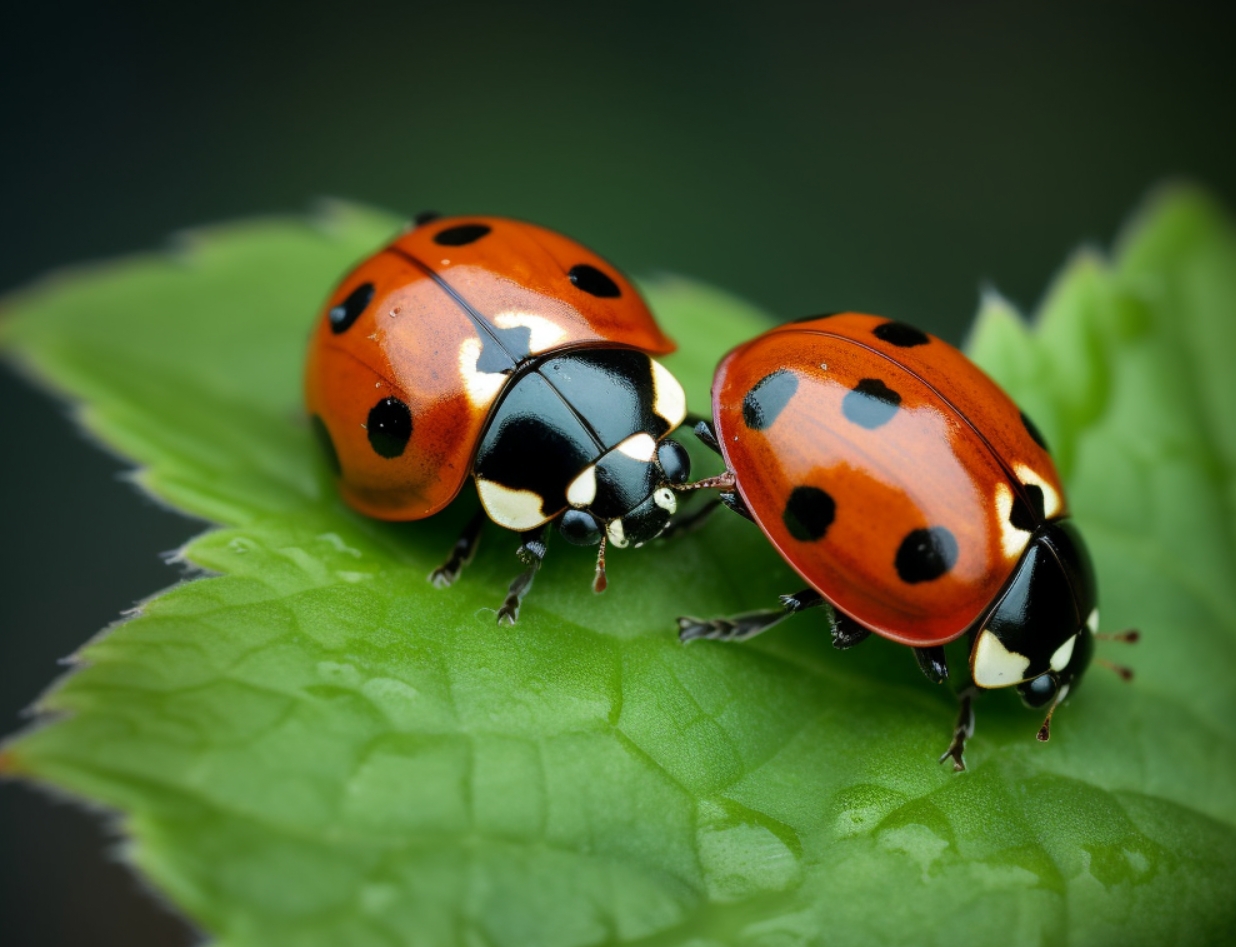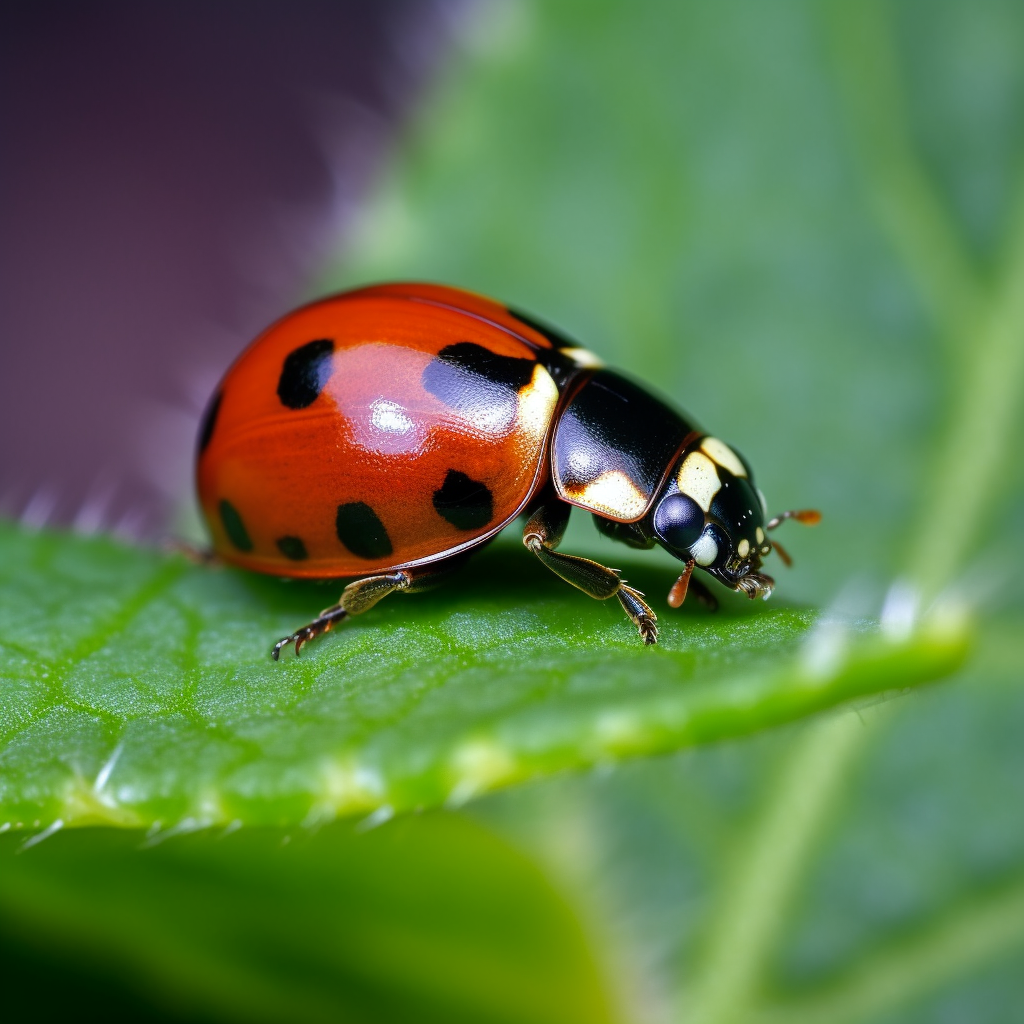If you’ve ever had the pleasure of hosting a picnic or spending time outdoors, you’ve likely encountered ladybugs. These small, colorful insects are often thought of as friendly, harmless creatures. But have you ever wondered if ladybugs can bite? More specifically, do Asian lady beetles bite? This article delves into the fascinating world of these insects, providing a comprehensive analysis and step-by-step guide to understanding their behavior.
Meet the Asian Lady Beetle
Contents
Asian lady beetles, scientifically known as Harmonia axyridis, are a species of ladybug native to Eastern Asia. They were introduced to North America in the early 1900s to control agricultural pests, particularly aphids and scale insects. Asian lady beetles are slightly larger than their native counterparts and are distinguishable by the “M” or “W” marking on their pronotum (the area behind their head).
A Colorful Variety
Asian lady beetles come in an array of colors, ranging from orange to red, with varying numbers of spots. They are often confused with native ladybugs, but the former are more aggressive and invasive. Over time, Asian lady beetles have established themselves as dominant predators in many ecosystems, outcompeting native ladybug species.
The Biting Truth: Do Asian Lady Beetles Bite?
To answer the burning question: Yes, Asian lady beetles can bite. While they are generally harmless to humans, they may bite when threatened or provoked. Their bite is usually not painful, but it can cause slight irritation or swelling in some individuals. In rare cases, an allergic reaction may occur, leading to more severe symptoms. If you suspect you’ve been bitten by an Asian lady beetle and are experiencing an adverse reaction, it’s essential to seek medical attention.
Why Do Asian Lady Beetles Bite?
Asian lady beetles are predators that primarily feed on soft-bodied insects like aphids. They use their sharp mouthparts, called mandibles, to puncture and consume their prey. Although they prefer to dine on insects, they may bite humans if they feel threatened or handled roughly.
Step-by-Step Guide: Do Asian Lady Beetles Bite and How to Handle Them
To avoid getting bitten by these small insects, follow this step-by-step guide on handling Asian lady beetles:
- Identify the insect: Before you handle any insect, ensure you have correctly identified it as an Asian lady beetle. Look for the characteristic “M” or “W” marking on its pronotum and compare its size and coloration to native ladybugs.
- Avoid handling them directly: If possible, avoid handling Asian lady beetles with your bare hands. Instead, use a piece of paper or a small container to gently coax them onto a surface. This minimizes the risk of being bitten and reduces stress for the beetle.
- Be gentle: If you must handle an Asian lady beetle, be gentle and avoid squeezing or pinching the insect. Apply minimal pressure and allow the beetle to crawl onto your hand.
- Wash your hands: After handling an Asian lady beetle, wash your hands thoroughly with soap and water. This helps prevent any potential allergic reactions or irritation from the insect’s defensive secretions.
- Release the beetle: If you’ve picked up an Asian lady beetle, release it outdoors in a safe area away from your home. These insects are beneficial predators that help control populations of agricultural pests.
What to Do If You’re Bitten by an Asian Lady Beetle
If you’ve been bitten by an Asian lady beetle, follow these steps:
- Clean the bite: Wash the bite area with soap and water to reduce the risk of infection. Avoid scratching the bite, as this may exacerbate the irritation.
- Apply a cold compress: Use a cold compress or ice pack wrapped in a cloth to reduce swelling and soothe the area. Apply the compress for 10-15 minutes at a time, repeating every hour as needed.
- Use over-the-counter remedies: Topical creams containing hydrocortisone or antihistamines can help alleviate itching and inflammation. Oral antihistamines may also be beneficial in reducing symptoms. Follow the manufacturer’s instructions and consult with a healthcare professional if you are unsure about which treatment is suitable for you.
- Monitor the bite: Keep an eye on the bite for signs of infection, such as increased redness, swelling, or pus. If you notice any of these symptoms or if the bite worsens, consult with a healthcare professional.
- Seek medical attention if necessary: If you experience severe symptoms such as difficulty breathing, rapid heartbeat, dizziness, or swelling of the face or throat, seek immediate medical attention. These symptoms may indicate an allergic reaction and require prompt treatment.
Keeping Asian Lady Beetles at Bay
While Asian lady beetles are beneficial predators, they can also become a nuisance, especially when they invade homes in search of a warm place to overwinter. To prevent an infestation, follow these tips:
- Seal entry points: Inspect your home for cracks and gaps that could serve as entry points for Asian lady beetles. Seal these openings with caulk or weatherstripping to keep the insects outside.
- Maintain your garden: Regularly trim trees and shrubs near your home to reduce the number of hiding spots for Asian lady beetles. Consider planting native plants that attract native ladybug species, which can help keep the invasive beetles in check.
- Use traps: Commercial traps designed for ladybugs can help catch and remove Asian lady beetles from your home. Be sure to follow the manufacturer’s instructions for proper use.
- Consult with a pest control professional: If you have a severe infestation, consider hiring a pest control professional to help manage the problem. They can assess your situation, recommend appropriate measures, and ensure that the issue is resolved safely and effectively.
In Conclusion
Asian lady beetles are fascinating insects with a voracious appetite for pests, making them beneficial in many ecosystems. However, they can bite when provoked or threatened. By understanding their behavior and following the guidelines provided in this article, you can minimize the risk of being bitten and maintain a harmonious relationship with these captivating creatures.
FAQs
Do Asian beetles bite or sting?
Asian lady beetles, a species of ladybug, can bite but do not sting. They are generally harmless to humans, and their bite is usually mild and not painful. However, some individuals may experience irritation or swelling.
What happens when a ladybug bites you?
When an Asian lady beetle bites, it uses its sharp mandibles to puncture the skin. The bite is typically mild and may cause slight irritation, redness, or swelling. In rare cases, an individual might experience an allergic reaction, leading to more severe symptoms. If you suspect you have been bitten and are experiencing adverse effects, seek medical attention.
Will Asian beetles hurt me?
Asian lady beetles are not aggressive towards humans and will generally only bite if they feel threatened or mishandled. While their bite can cause mild discomfort, it is not considered dangerous for most individuals. However, people with allergies or sensitivities to insect bites should exercise caution and avoid handling these beetles.
What do Asian ladybug bites look like?
An Asian lady beetle bite may appear as a small, red bump or a slightly raised area on the skin. The bite site may be accompanied by mild irritation, redness, or swelling. In most cases, the symptoms will subside within a few hours to a couple of days. If the bite becomes infected or the symptoms worsen, consult a healthcare professional for advice.

